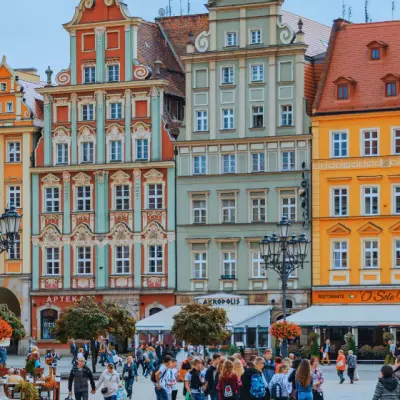The future of Ukrainian refugees on the Polish and Czech labour markets
One in three Ukrainian refugees declares that they will stay in Poland for the long term, and this means that their influx can also support the Polish labour market in the long term, according to the report Ukrainian Refugees in Poland.
"The outbreak of war in Ukraine has triggered a migration potential of a scale not seen since World War II. We need to face the challenges and seize this opportunity" - write the authors of a report by the WiseEuropa Foundation, entitled 'Hospitable Poland 2022+'.
Poland and the Czech Republic have been experiencing a labour shortage for several years. After 2010, as a result of the low fertility rate observed since the 1990s, the number of people of working age began to decline, while the rapidly growing economy is creating plenty of jobs. More than half of refugees in both the Czech Republic (55%) and Poland (63%) express a desire to work in their country of emigration. An increasing number of migrants is one possible solution to fill the growing demographic gap.
With the recently observed decrease in the number of people of working age, this inflow compensates (depending on the scenario) from 1.5 to 4 years of the decrease in the number of people of working age observed before 2020 - as the authors of the report 'Hospitable Poland 2022+' write.
A strategic approach to the topic and the future of war refugees is therefore crucial, but also to encourage them to feed the labour market of the countries to which they emigrated. To this end, the focus should be on overcoming the barriers that may accompany their acclimatisation. The reluctance to stay in our country for the long term and the language barrier are important factors here. The question is, then, why did refugees choose Poland or the Czech Republic and not other Western countries? First and foremost, as the author of the study points out, the close location and good communications, but also the extensive social network of Ukrainians, which already existed in the area before the war, was a great support, especially for those who did not speak the language. Nevertheless, as the EWL survey indicates, ¼ of the Ukrainians arriving in Poland speak Polish at least at an average level, while 1/5 of those arriving in the Czech Republic speak Czech at the same level. As far as the English language is concerned, in both cases, 2/3 speak English at a communicative level.
13% of highly qualified workers, managers and executives plan to stay in Poland permanently or at least for a few years after the end of the war; in the Czech Republic, the percentage is less, at 7%. The fact is that the largest percentage of newcomers are women with children. Their decision to stay in the country depends on how long the war will keep them here and what they would find in Ukraine after the war. Importantly, a third of Ukrainian women are still working in Ukraine while in Poland - remotely. They lecture, teach in schools, work in IT and get paid. However, the wages there probably do not fully cover the Polish cost of living.
In this case, will there be a solution to the needs of the Polish labour market? This will certainly become clear in the coming years. Unfortunately, it is rather obvious that women will not end up in those industries where there are the greatest deficits. Especially if we are talking about professions where men predominate - construction or international transport. The percentage of highly skilled workers, although still low but still visible, may give hope that maybe Ukrainians will not be entirely the answer to solving the labour market deficit, but they can still potentially be very strong candidates worth attracting and retaining in their organisations.














